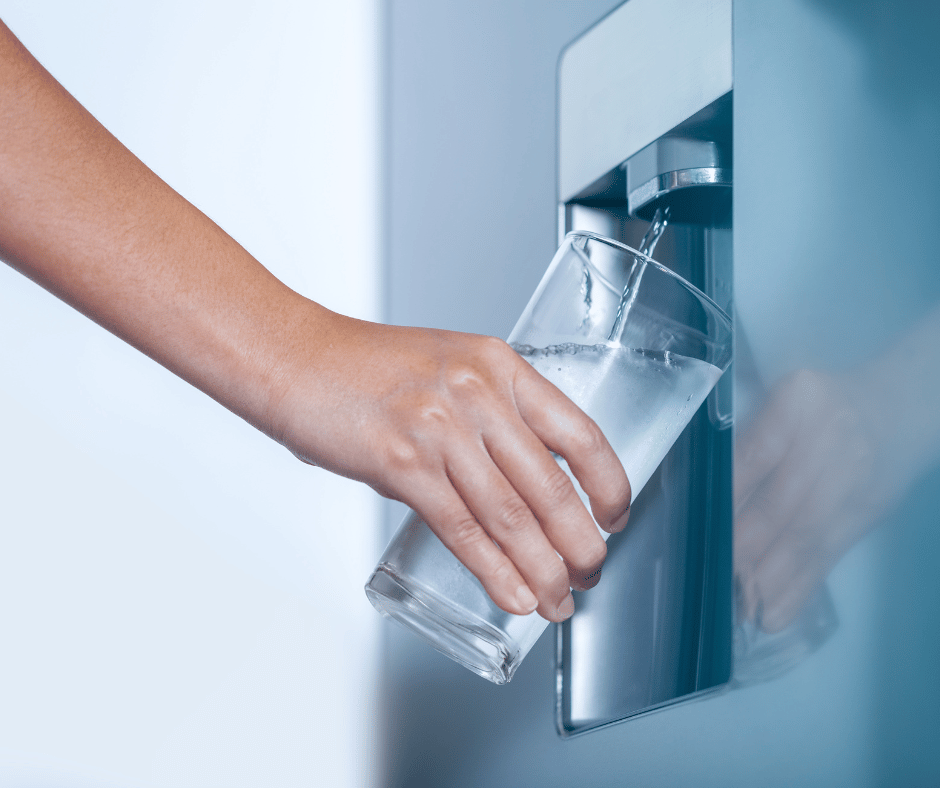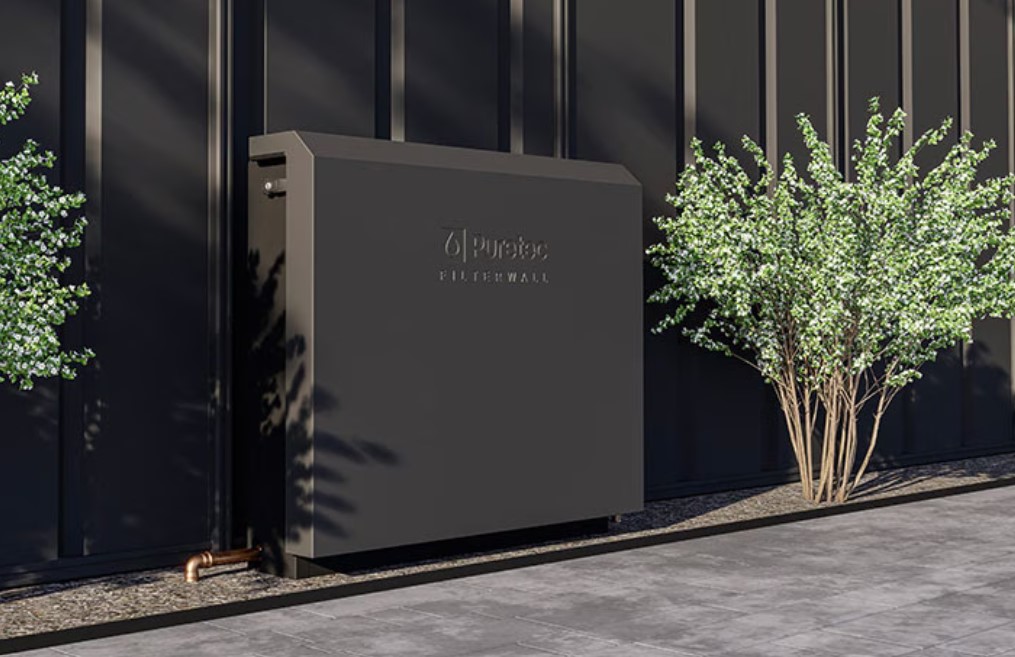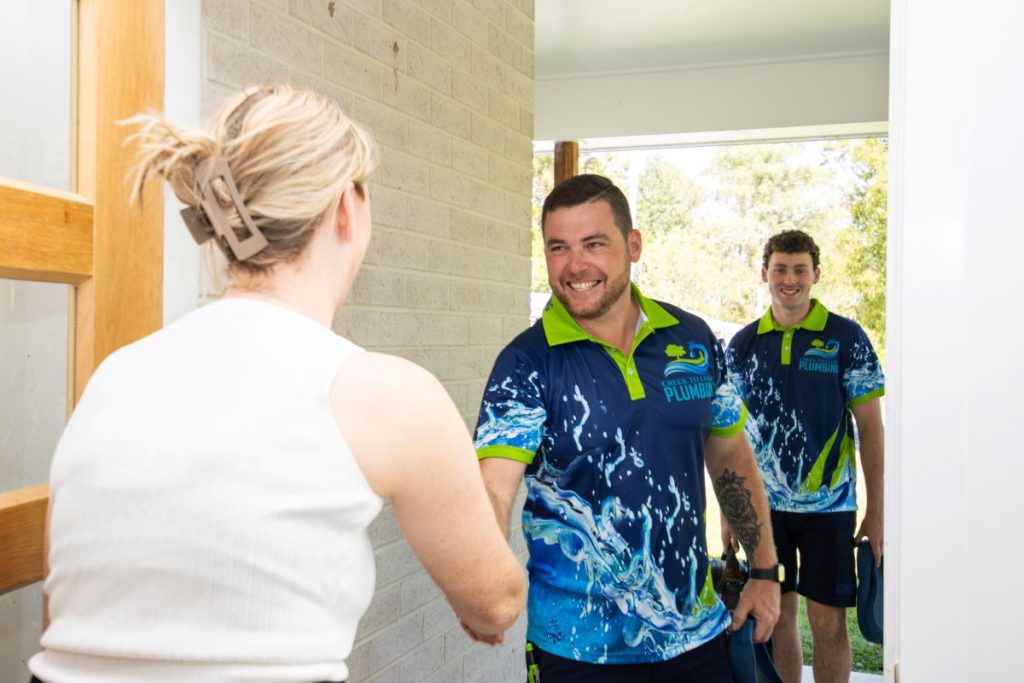You can’t smell them, and you can’t taste them. However, PFAS chemicals, commonly referred to as “forever chemicals”, are present in the water we consume daily.
Since the 1950s, these chemicals have been utilised in various products ranging from firefighting foam and fast food wrappers to non-stick cookware and stain-resistant clothing. What makes PFAS so beneficial is also what makes them a significant challenge: they are resistant to environmental degradation. Once introduced into the environment, these chemicals can persist for years, accumulating in soil, water, and even within the human body as time passes.

Essential Insights on PFAS: Understanding “Forever Chemicals”
Recently, Seqwater, the organisation responsible for managing the drinking water supply in South East Queensland, has confirmed the detection of trace amounts of PFAS in both raw and treated water across the region. Although these levels are minimal and still comply with national safety guidelines, their presence is concerning, particularly as they are being identified in a growing number of catchments and with increasing frequency. For more information, you can refer to Seqwater’s dedicated PFAS page.
How Did PFAS Contaminate Our Drinking Water?
PFAS are not intentionally added during the water treatment process. Instead, they infiltrate the water cycle from external sources such as industrial waste, landfill runoff, fire training sites, and stormwater runoff. During rainfall, these chemicals can be washed off from roads, roofs, and soil into the rivers and dams that supply our water treatment facilities. Given the persistence of these chemicals, even sophisticated water treatment technologies do not always eliminate them entirely.
Although the risk associated with these contaminants is deemed low, many households in Queensland are understandably taking precautionary measures, particularly families with young children, those with compromised immune systems, or households relying on rainwater tanks. This is where the implementation of whole-house water filtration systems becomes crucial.

Can Standard Water Filters Effectively Remove PFAS Contaminants?
In brief, most standard water filters cannot effectively remove PFAS.
Typical filtration methods such as pitcher jugs, tap-mounted units, or basic under-sink systems are designed to enhance taste, reduce chlorine levels, and capture sediment. However, when it comes to addressing PFAS contaminants, these systems are generally inadequate.
Removing these persistent chemicals requires more than just a straightforward filtration process. Effective elimination typically necessitates:
- Extended contact carbon block filtration
- Anion exchange resins, or
- Reverse osmosis — technologies that are not found in standard off-the-shelf filters.
This raises significant concerns for households that utilise plumbed-in fridges, where the filtered water may seem clean but is not specifically treated for PFAS. Most tap filters or fridge filter cartridges lack the necessary filtration stages or dwell time to significantly reduce PFAS levels.
How Do Whole House Filtration Systems Reduce PFAS Exposure?
This is where whole-house filtration systems, such as those provided by Creek to Coast Plumbing, play a vital role.
These advanced systems treat every drop of incoming water before it reaches any tap, appliance, or plumbing fixture, including your refrigerator.
Creek to Coast Plumbing installs Puretec premium-grade filtration systems that incorporate:
- Carbon block filters designed for extended contact time — essential for effective PFAS reduction
- pH correction filters to stabilise acidic rainwater
- UV disinfection to eliminate bacteria, viruses, and parasites
- Optional reverse osmosis integration for additional filtration at kitchen taps if desired
It’s not just about improving the taste of your water; it’s about safeguarding your entire household from harmful contaminants at the source, ensuring safer showers, laundry, and cooking water, not just for drinking.
Why Opt for Whole House Filtration Systems?
A single under-sink filter may protect your kitchen tap, but PFAS can still infiltrate your home through various outlets such as bathroom taps, showers, garden hoses, and washing machines. Whole-house systems provide comprehensive protection for every outlet, including:
- Drinking and cooking water
- Bathing and brushing
- Laundry
- Water for pets and garden use
Puretec’s FilterWall F-Series and Hybrid-Plus systems are robust enough to deliver complete household protection, installed right at the point of entry by our skilled and licensed team.
Does Whole House Filtration Systems Really Make a Difference?
Absolutely, especially for families concerned about cumulative exposure. While Seqwater is diligently managing water quality, implementing filtration at the home level offers:
- An additional barrier against chemical intrusion
- A consistent line of defence, irrespective of public infrastructure
- Enhanced taste and odour, along with peace of mind
- Support for individuals with allergies or sensitivities
Town Water vs. Rainwater: Understanding the Risks of Both Supplies
Even if you rely on a town water supply, PFAS can still permeate into your home. However, if you are harvesting rainwater for household use, your risk profile is significantly elevated.
Rainwater in Queensland may contain:
- Animal waste from roof catchments
- Airborne chemicals from industrial activities or bushfire zones
- Low pH water that can corrode pipes and release heavy metals into your water supply
- Tannins from decomposing vegetation
This highlights the necessity of a whole-house system for homes relying on tank water, particularly those with children, elderly residents, or frequent visitors who may not be accustomed to untreated water.
How Can You Determine If Your Filter Effectively Handles PFAS?
If your current filtration system does not explicitly mention PFAS reduction, it is likely ineffective in this regard.
To ensure your system is capable, look for filters that include:
- NSF/ANSI 53 or 58 certification for PFAS filtration
- Activated carbon filters designed for high contact time
- Reverse osmosis or hybrid systems that are rated for PFAS contaminants
- Professional installation to prevent pressure drops or bypass issues

Choose Creek to Coast Plumbing: Your Local Experts for Water Filtration Solutions
As certified Puretec installers, we specialise in designing and implementing whole-house water filtration systems tailored to Queensland's unique conditions, whether you are connected to town supply or utilising off-grid tank water. We service homes throughout the Sunshine Coast, Moreton Bay, and inland regions, recognising that effective filtration is about more than just taste; it’s about providing peace of mind for you and your family.
With our comprehensive yearly servicing and filter replacement programs, you’ll never have to question whether your system is functioning effectively.
Call 1300 793 962 or reach out to us online.
Are You Looking for Water Filters That Effectively Remove PFAS?
Inquire about our offerings:
- Whole House Carbon Block Filtration
Treats all water entering your home, encompassing taps, showers, appliances, and refrigerator plumbing. - UV + Carbon Combination Systems
Advanced multi-stage systems designed to neutralise bacteria and filter chemical residues — ideal for properties using rainwater and tank-fed sources. - Reverse Osmosis (RO) Add-Ons for Drinking Water
Installed discreetly beneath your kitchen sink for ultra-purified water at your most frequently used outlets.



It’s both alarming and eye-opening to consider how long these “forever chemicals” have silently integrated into our lives. I remember when I first learned about PFAS; it felt surreal to think of chemicals lurking in everyday products we use without a second thought. The persistent nature of PFAS serves as a stark reminder of the long-term impacts human innovation can have on our environment and health.
It’s a bit unsettling to think that substances we can’t even see or smell are lurking in our water supply. I’ve been reading more about PFAS since I first heard about them, and it really brings to light how interconnected our modern conveniences are with environmental health. The fact that they stick around “forever” is pretty concerning, especially with the growing focus on sustainable practices.
It’s concerning how pervasive PFAS chemicals have become in our environment without us even realizing it. The fact that we cannot smell or taste them only adds to the unease, considering their cumulative presence in our bodies and ecosystems. While Seqwater’s detection of trace amounts may comply with safety guidelines for now, I wonder how often these guidelines are reassessed in light of emerging research on the long-term health impacts of PFAS exposure.
It’s quite unsettling to think about the pervasive nature of PFAS in our environment, especially considering their long-lasting presence and potential health implications. Growing up in a time when these chemicals were heralded for their beneficial properties, I can’t help but reflect on how little awareness many of us had about the lasting effects of these substances.
It’s pretty unsettling to think about how long PFAS have been around and how they’ve silently integrated into our lives. I’ve recently started paying more attention to the products I use, like opting for stainless steel instead of non-stick cookware. It’s a small switch, but I feel a bit better knowing I’m not adding to my exposure. I wonder how much consumer awareness can really shift the market. If more people push for PFAS-free products, do you think companies would respond? It feels like a complex issue, especially when so many everyday items still rely on these chemicals. Looking forward to hearing others’ thoughts on how we can tackle this!
It’s concerning to think about the presence of PFAS in our drinking water, even in trace amounts. It almost feels like we’re living in a sci-fi scenario where these chemicals lurk in the background of our daily lives, and the fact that they’re called “forever chemicals” really emphasizes just how persistent they are. I often find myself reflecting on how much we rely on these types of chemicals, not just in our drinks but also in the broader context of consumer products.